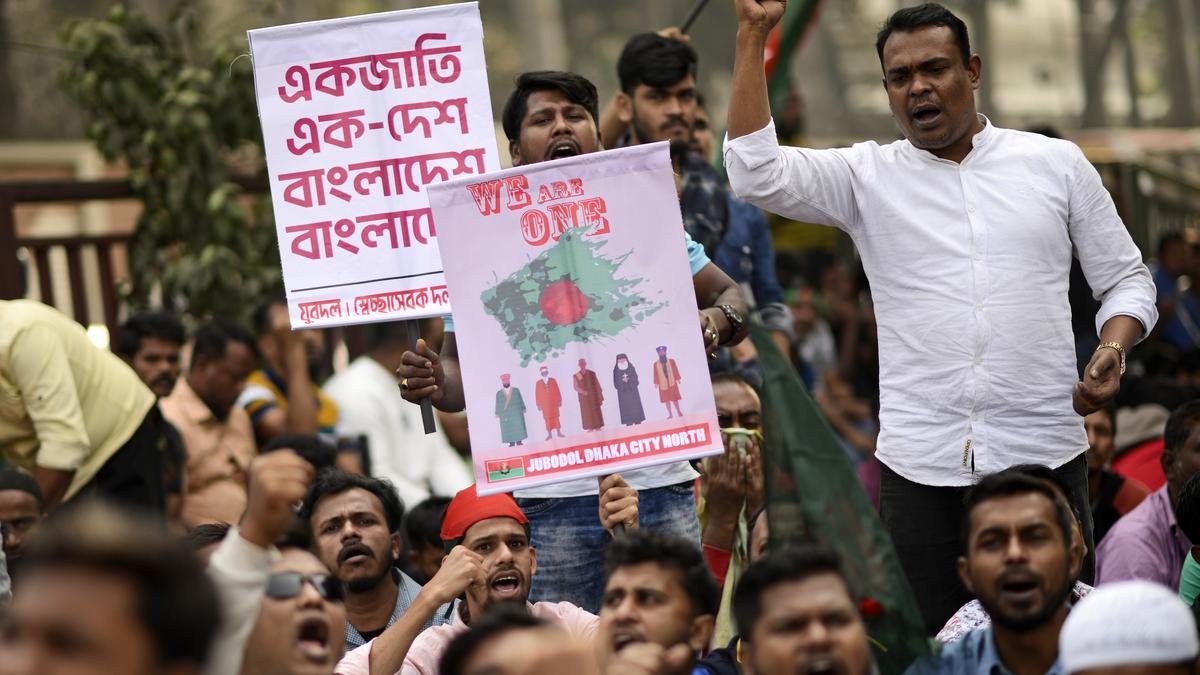
Mob justice replaces extrajudicial killings in Yunus-led Govt in Bangladesh, stability hangs in balance
The Hindu
After the fall of Sheikh Hasina’s 15-year regime on August 5, Bangladesh has experienced a sharp rise in mob violence, fabricated cases, robbery, mugging and extortions.
Abdul Hai Kanu, a 78-year-old veteran freedom fighter from Bangladesh’s Comilla district, could never have imagined that December — a month synonymous with liberation and pride — would become a chapter of horror in his life.
On the afternoon of December 22, in his hometown in Chauddagram under Comilla, Abdul Hai Kanu was on his way to the market to buy medicine when a group of young men, affiliated with the politics of Bangladesh Jamaat-e-Islami, surrounded him. They forced a garland of shoes — a symbol of ultimate humiliation — around his neck and captured his torment. They then shared the video on social media that has since gone viral where Mr. Kanu can be seen standing visibly crushed. His trembling hands clasped together as he begged for mercy, his voice breaking with desperation. “Let me go,” he pleaded, but his cries met only cold disdain. They also asked him to leave the district.
Mr. Kanu was involved with the Awami League, the party of ousted Prime Minister Sheikh Hasina, but claimed he never harmed anyone despite his political affiliations. He said that he had to leave his village for eight years due to conflicts with the local MP from Sheikh Hasina’s party. After this incident, Mr. Kanu was admitted to hospital and left his village for another district. However, the chief adviser press wing condemned the deformation and asked authorities to launch an investigation into the incident.
Not only Mr. Kanu, but hundreds have recently fallen victim to mob justice, killings, fabricated cases, brutal attacks, and public humiliations across Bangladesh. Mr. Kanu is relatively fortunate to have survived, unlike two young men who were beaten to death by a mob on suspicion of cattle theft in the presence of police on December 14 in Kishoreganj. In recent months, an alarming number of people have lost their lives to mob justice across the country.
After the fall of Sheikh Hasina’s 15-year regime on August 5, a tenure marked by allegations of extrajudicial killings, enforced disappearances, the country has experienced a sharp rise in mob violence, fabricated cases, robbery, mugging and extortions. The instability persists, with the nation still struggling to restore law and order, even after four months under the interim government led by Nobel Laureate Prof. Dr. Muhammad Yunus.
The surge in many forms of violence has disproportionately targeted both Awami League members and those unaffiliated with the party, often stemming from political disputes, power struggles, internal party conflicts and monetary gains. Although police operations have resumed across the country, and traffic police are actively managing road traffic, a sense of fear still lingers within the force. The visible police presence has done little to reassure the public, as officers remain hesitant to intervene.
“Since August 5, the police chain of command has been severely disrupted. Senior officers can no longer enforce duties on juniors as they once did. Now, officers think multiple times before intervening in any incident, fearing reprisals if their actions go wrong. There’s still a prevailing trend of prioritizing personal safety over intervention,” a police officer stationed at Police Headquarters told The Hindu on condition of anonymity.













